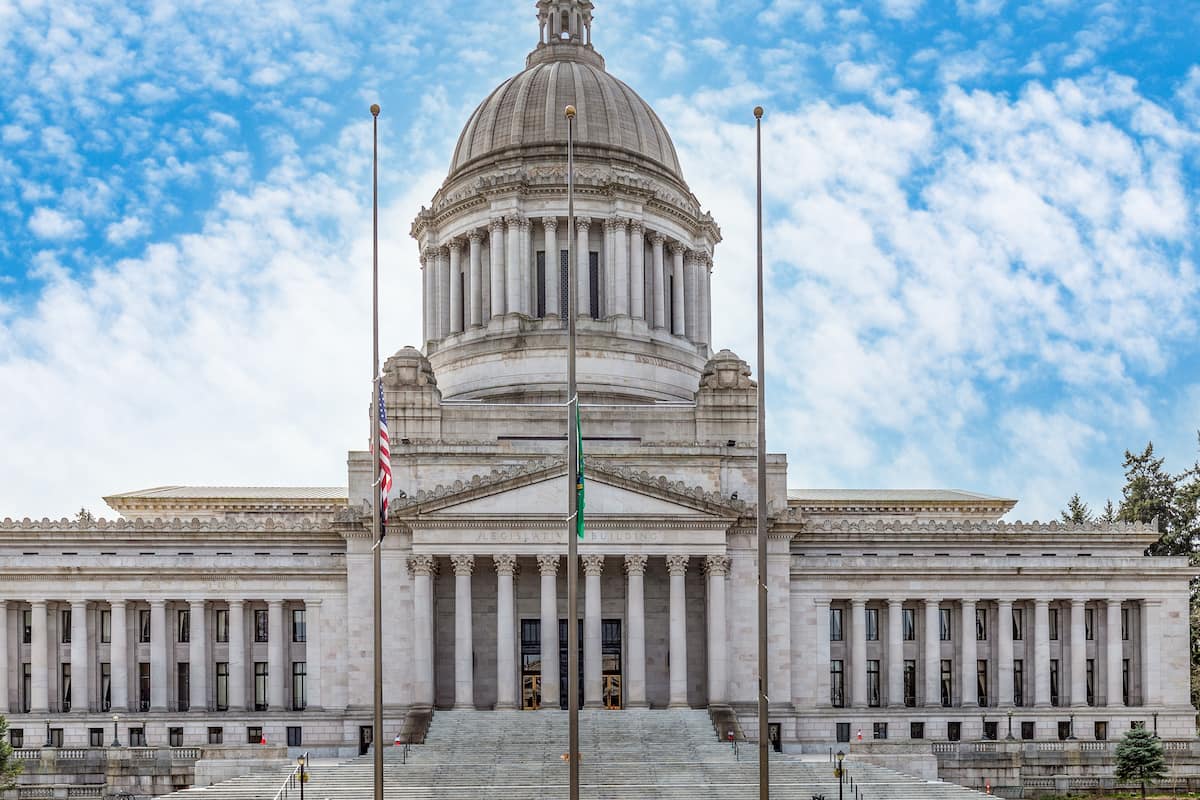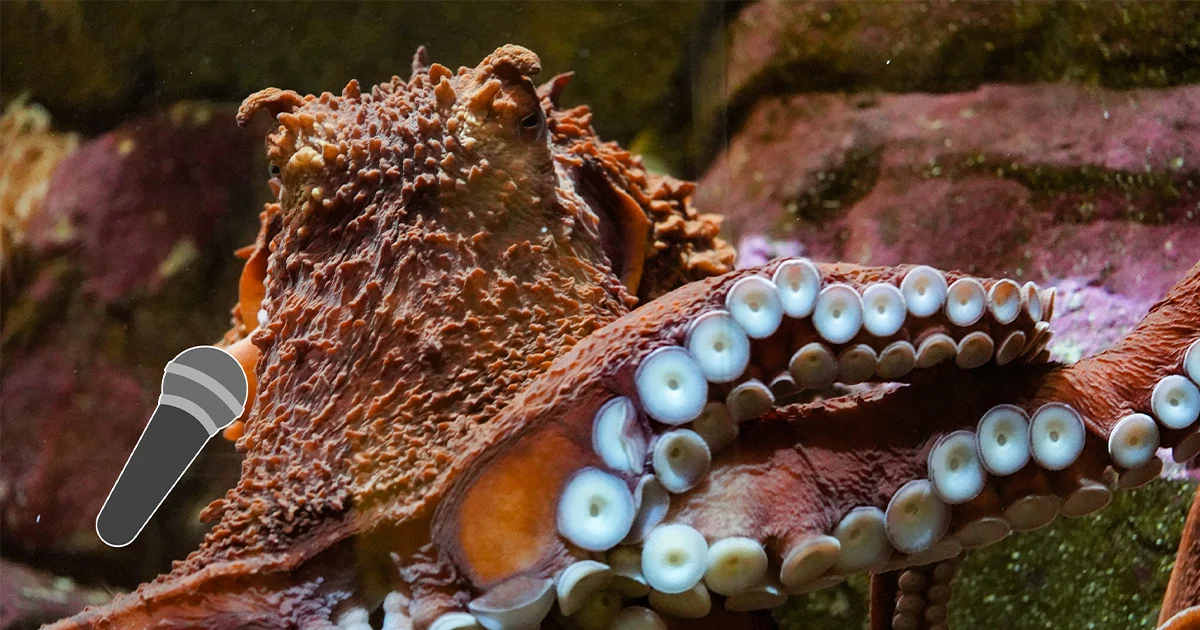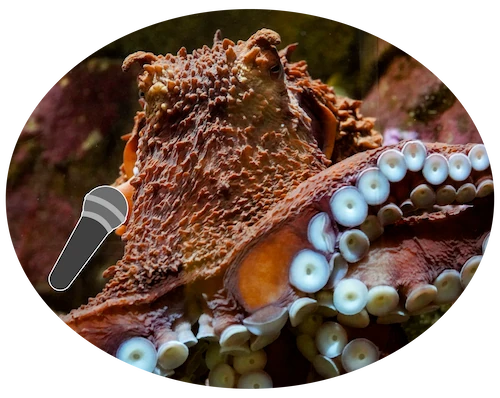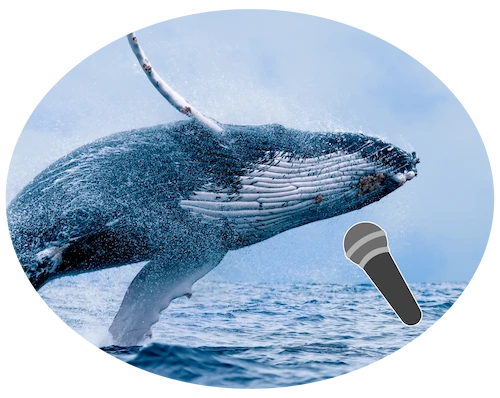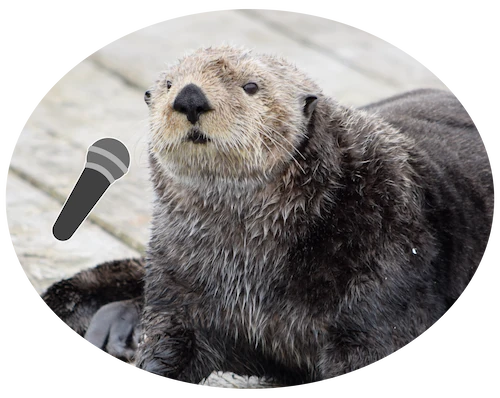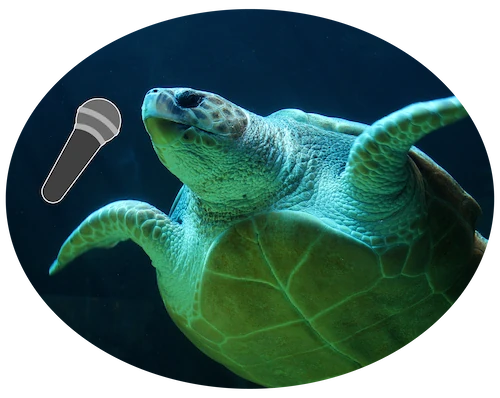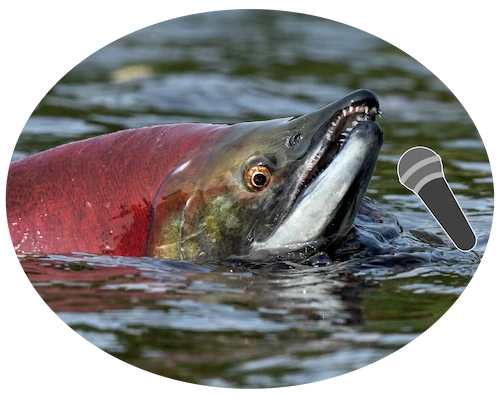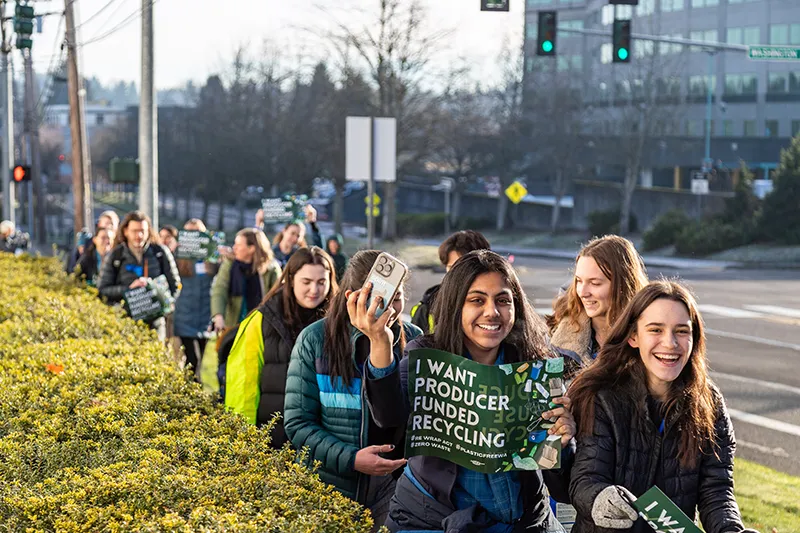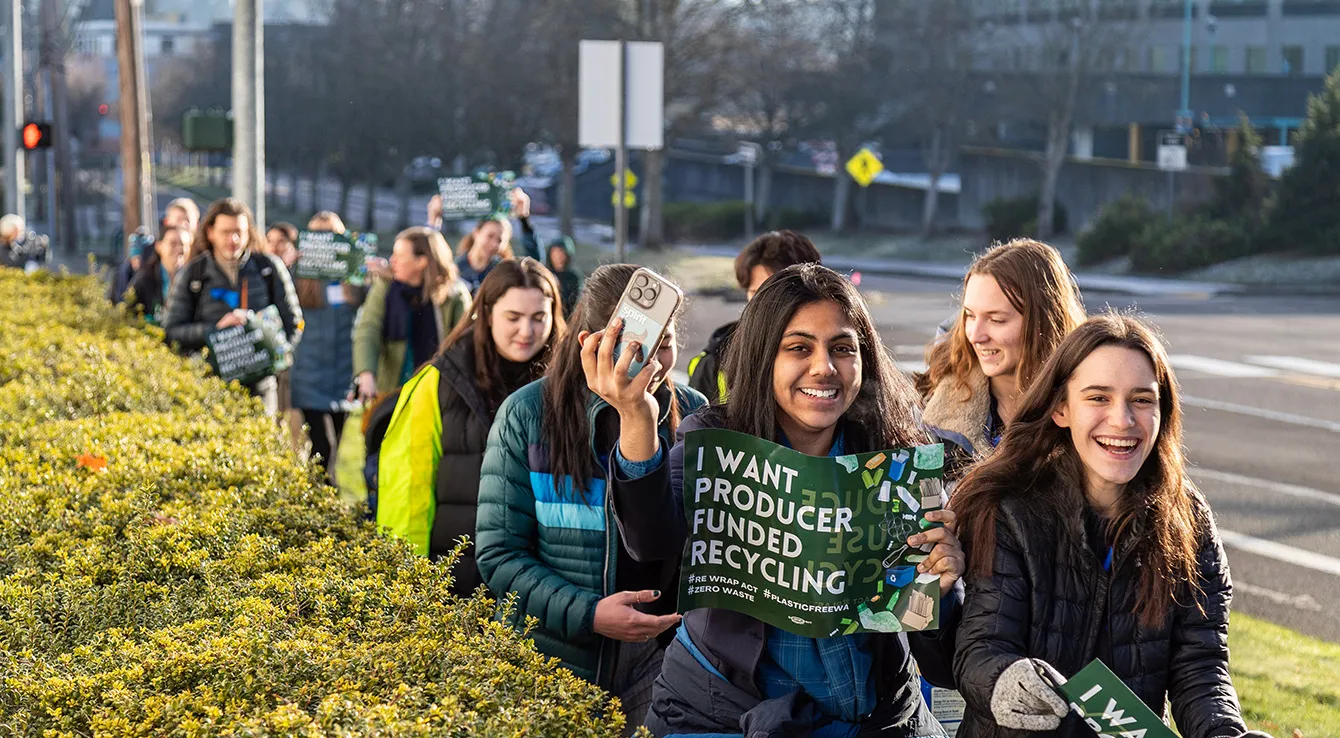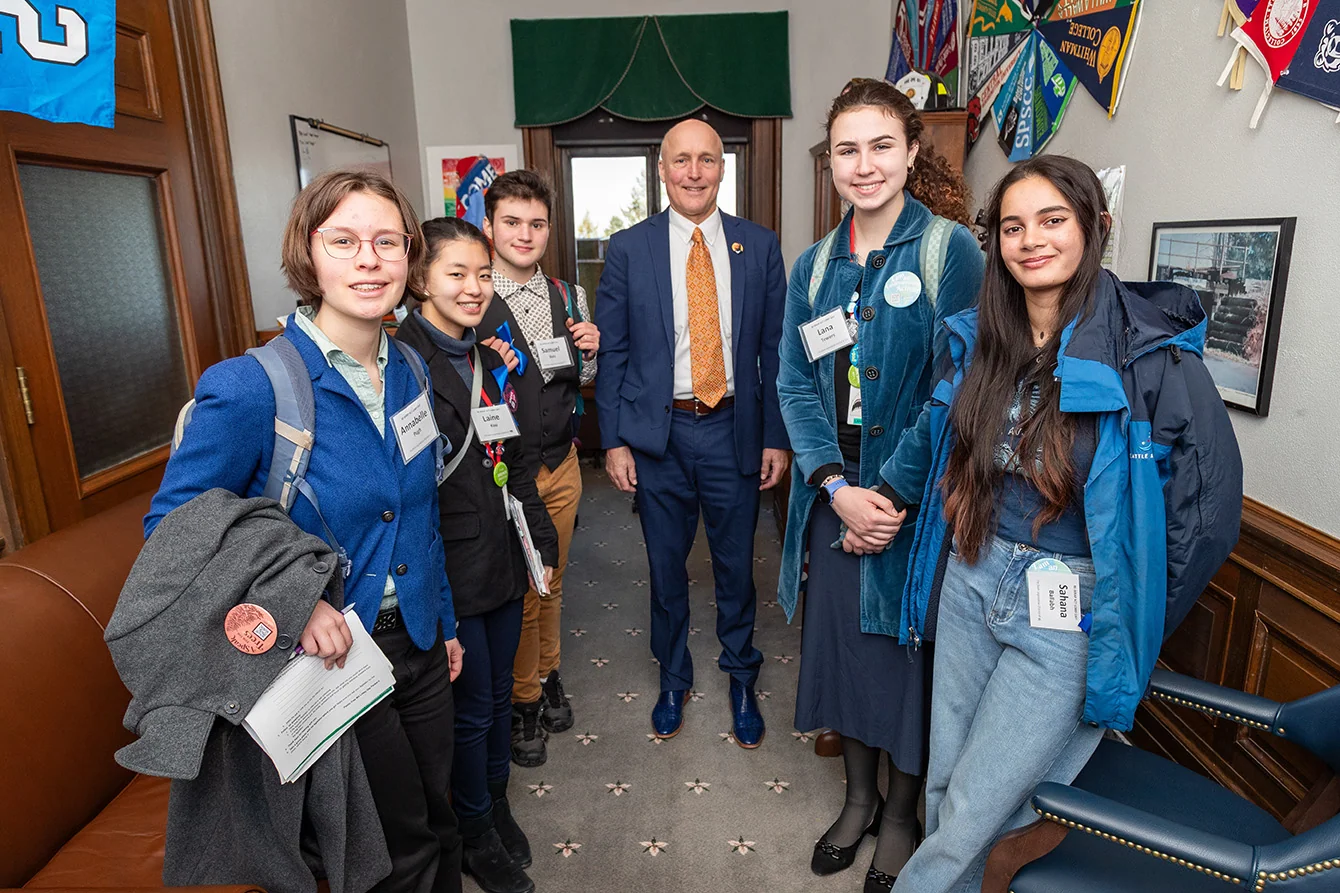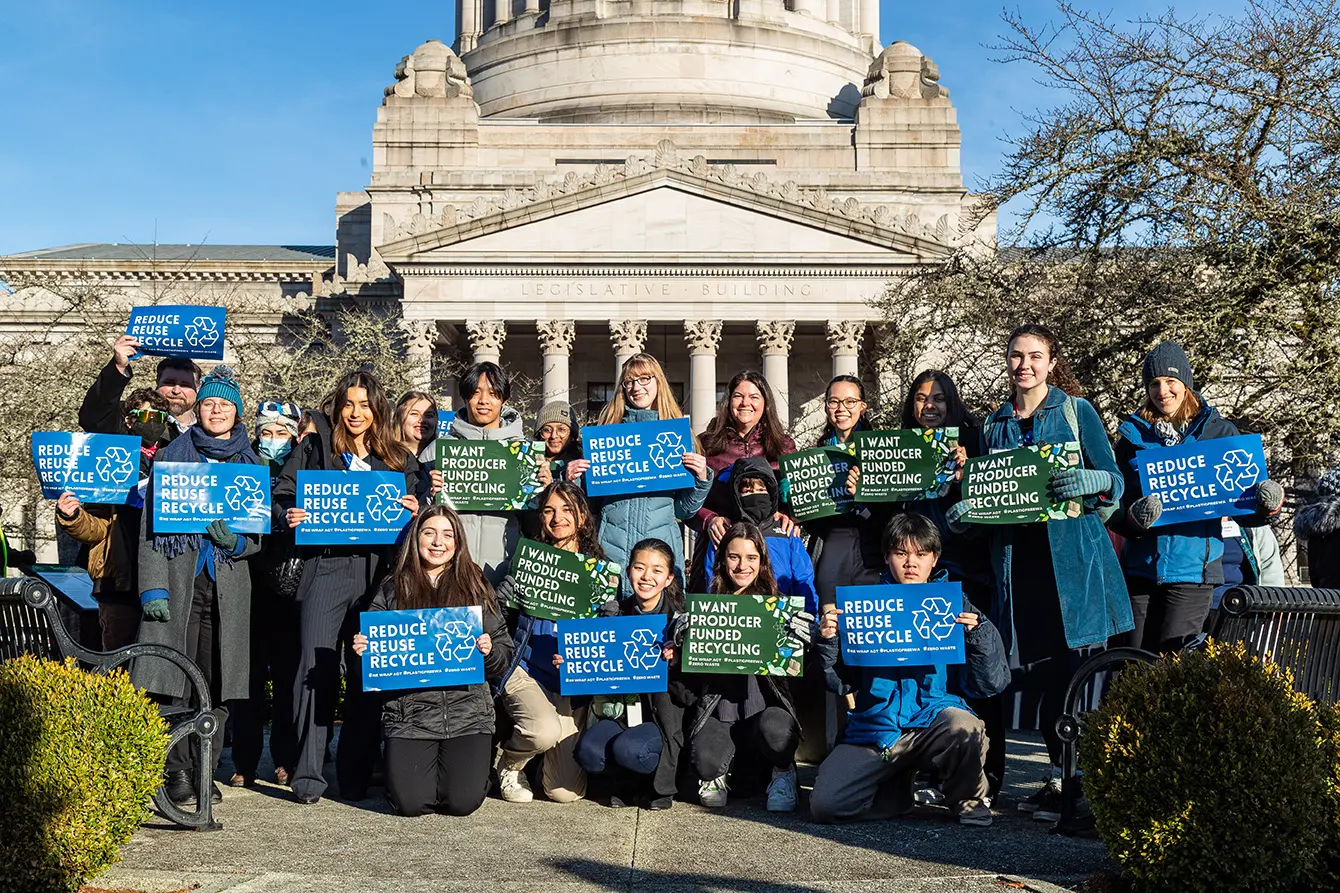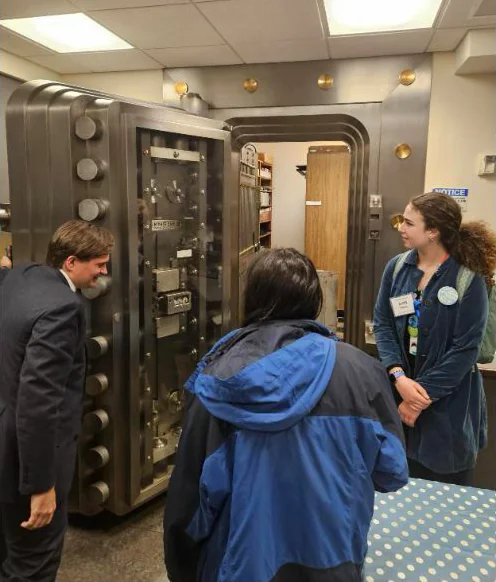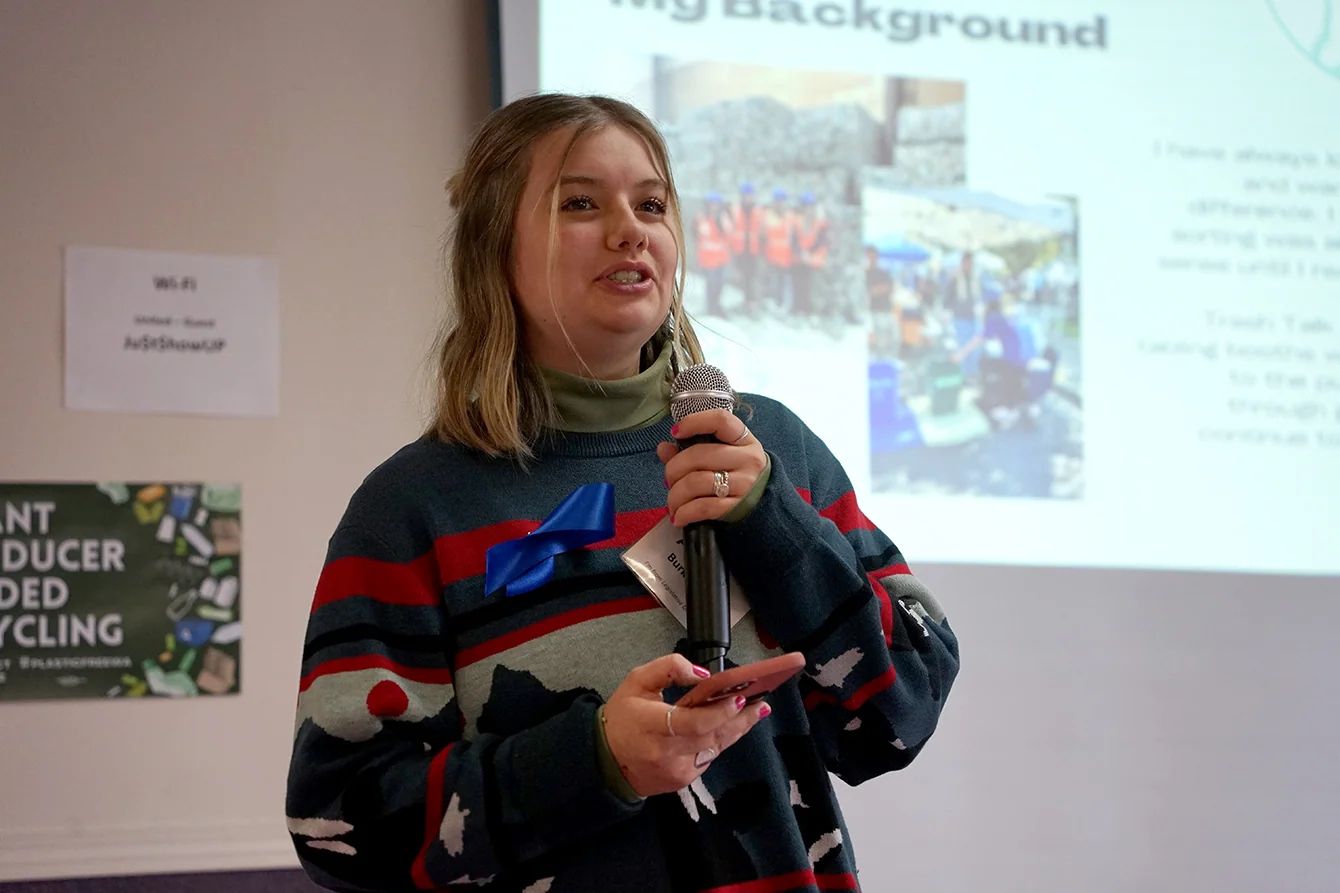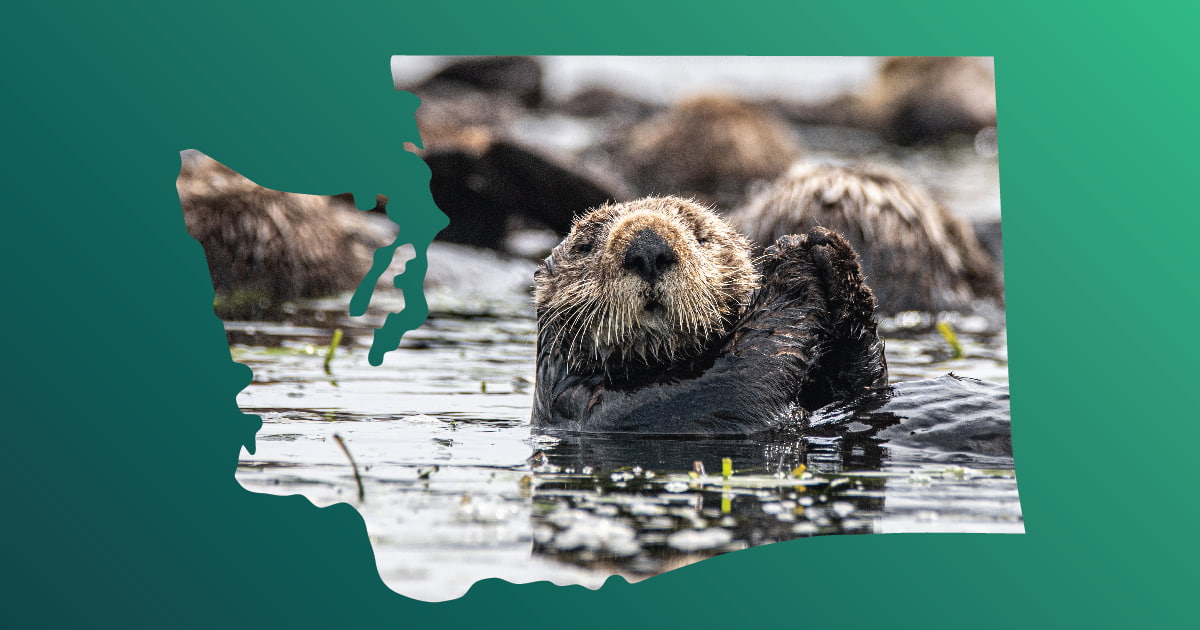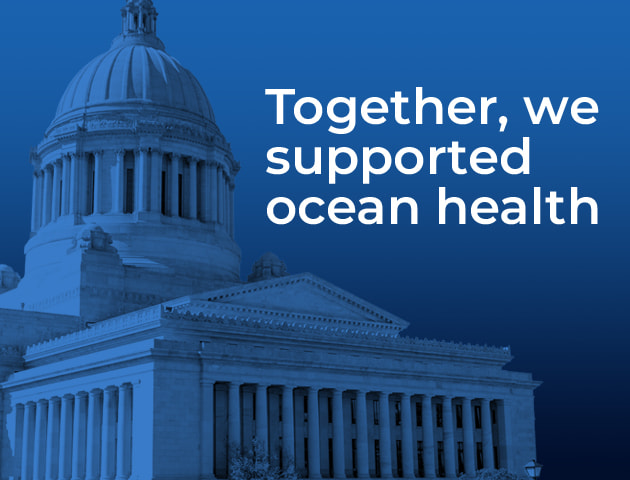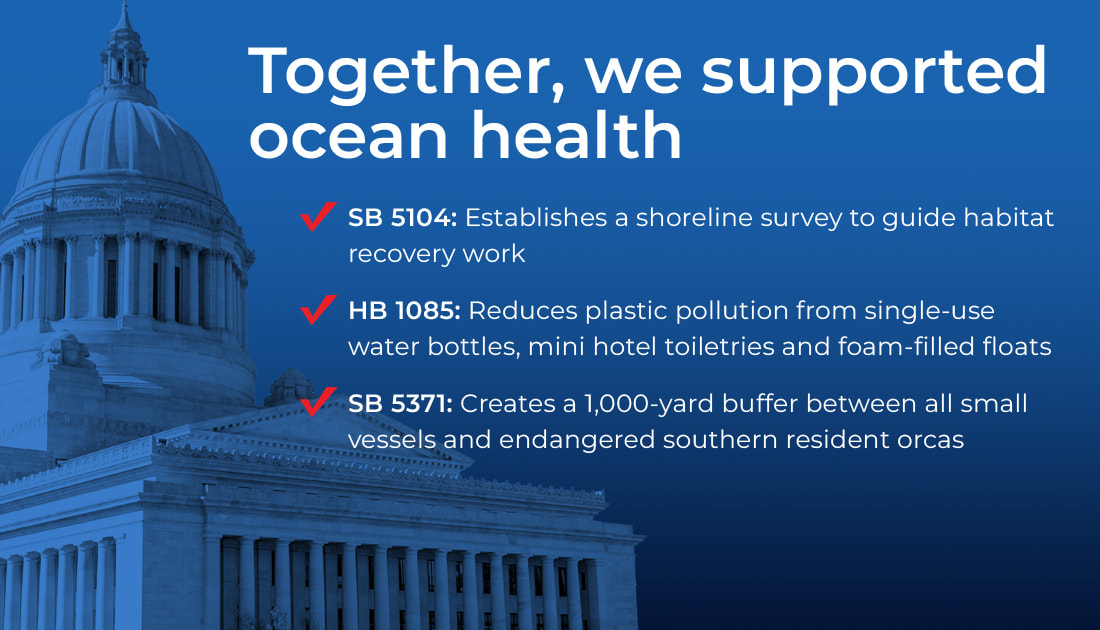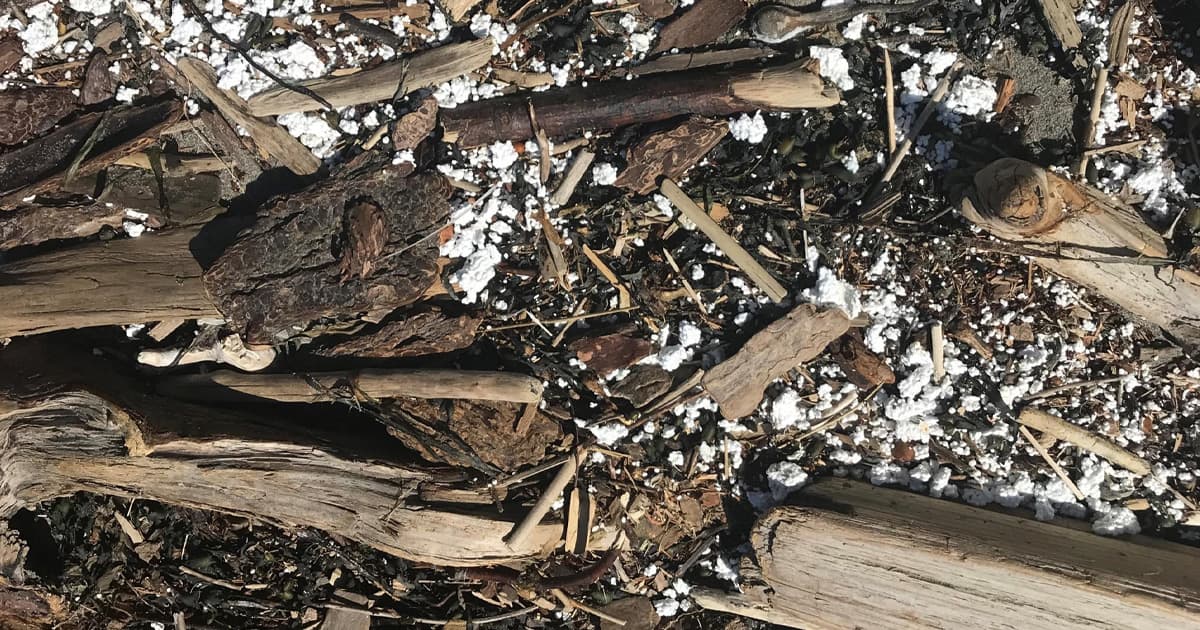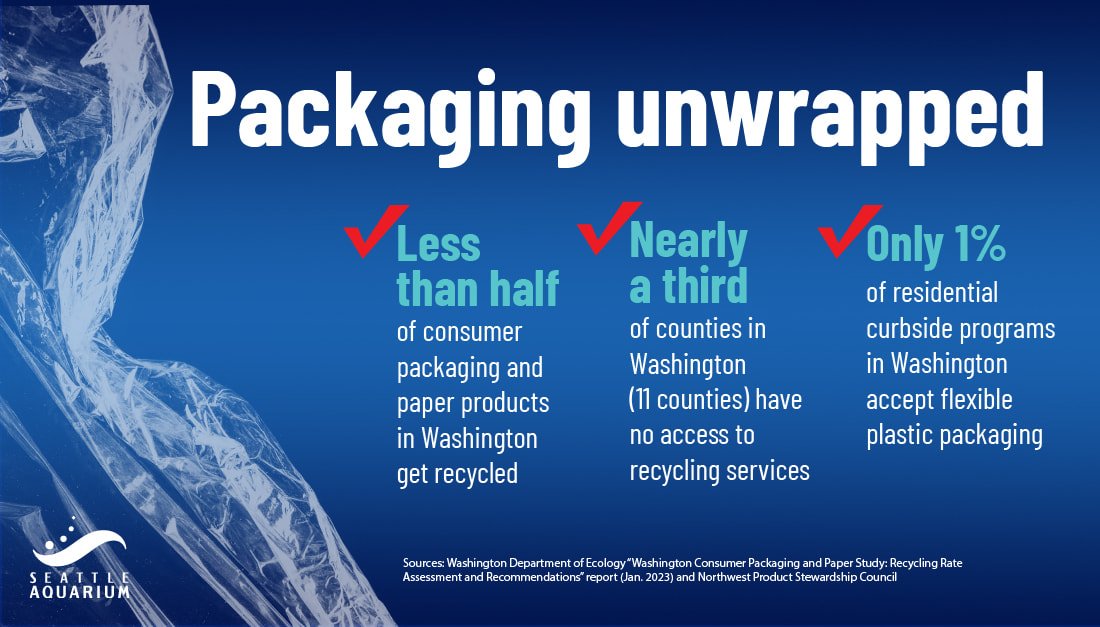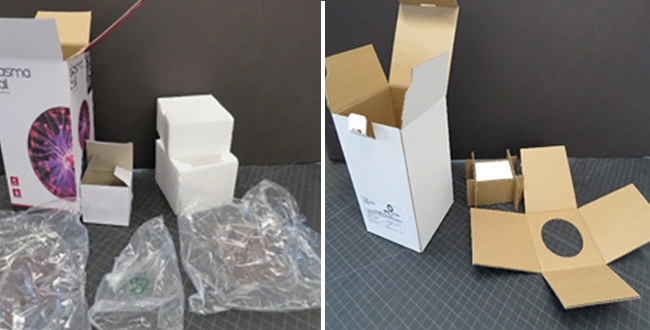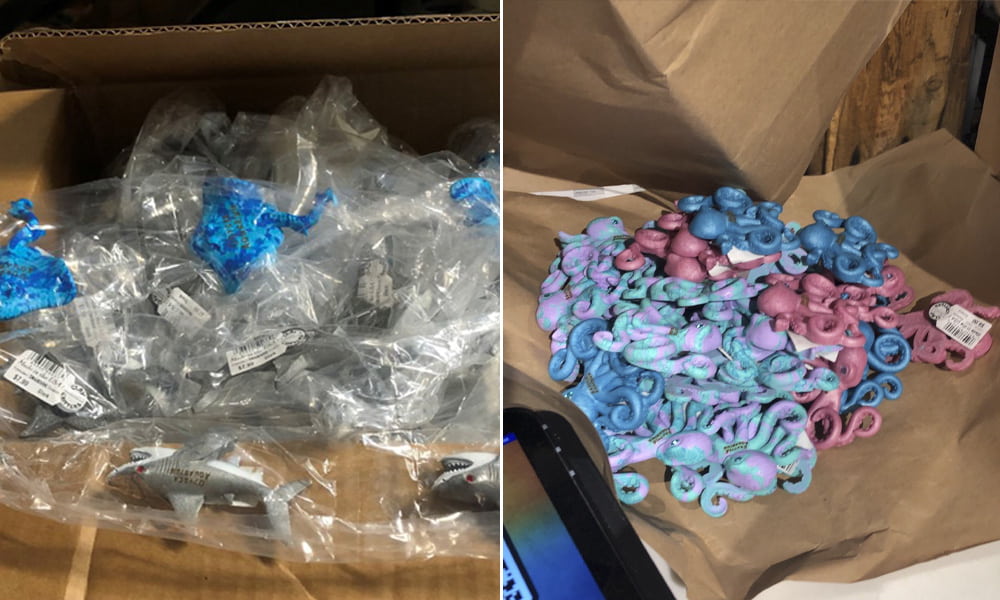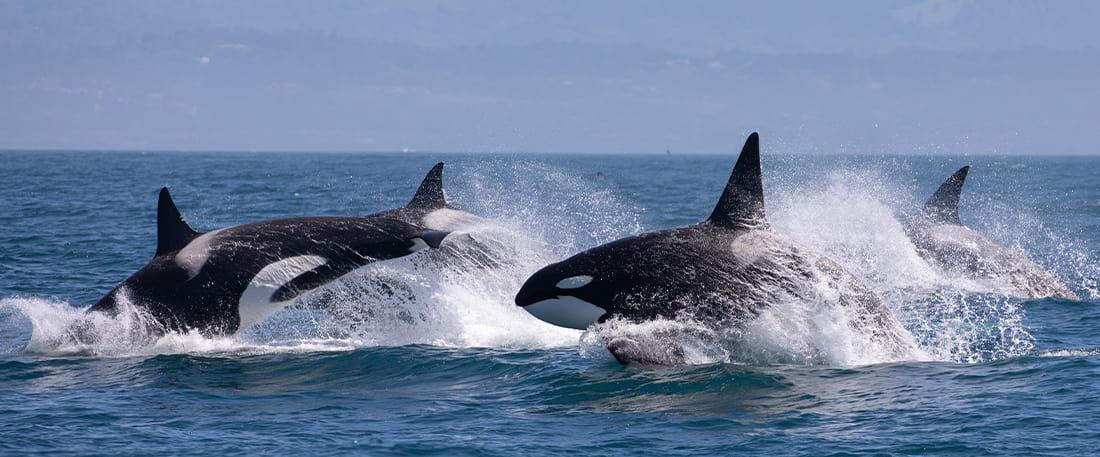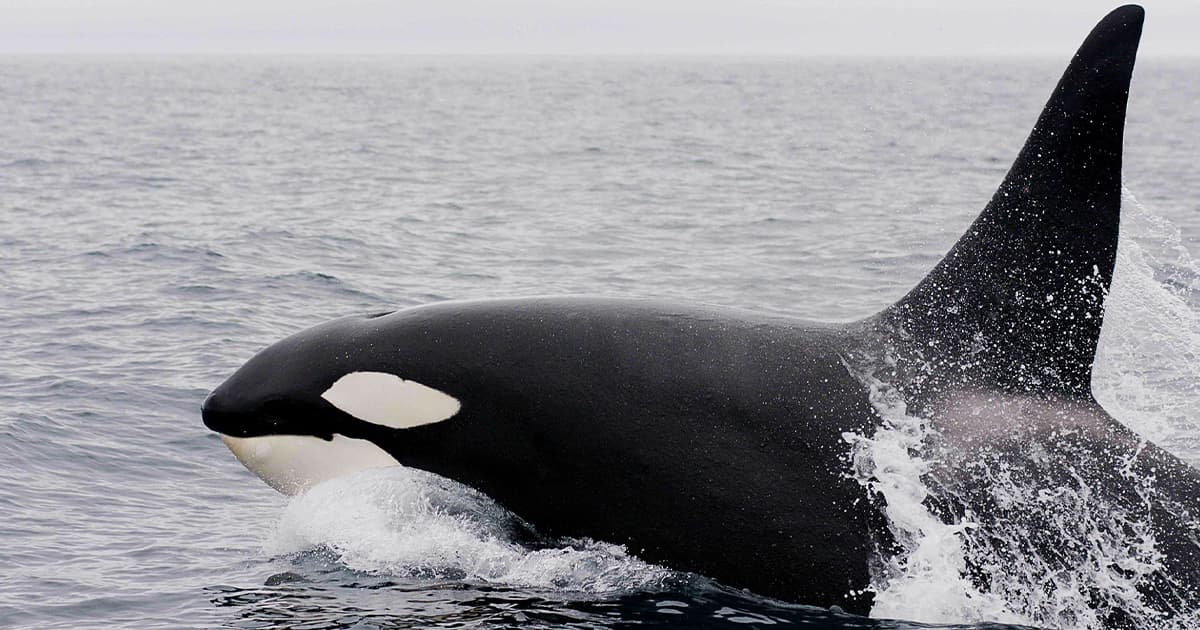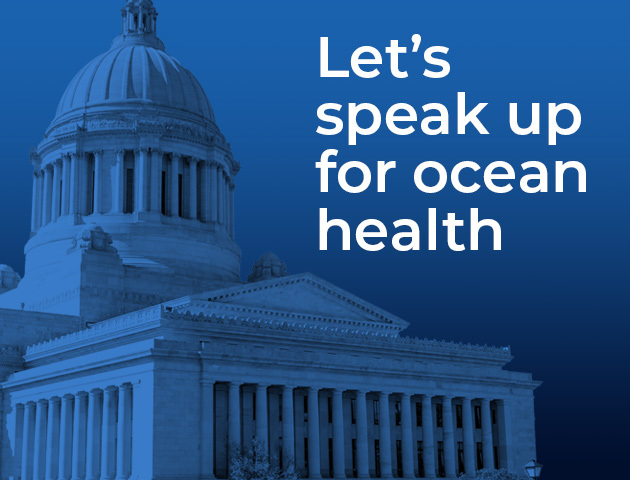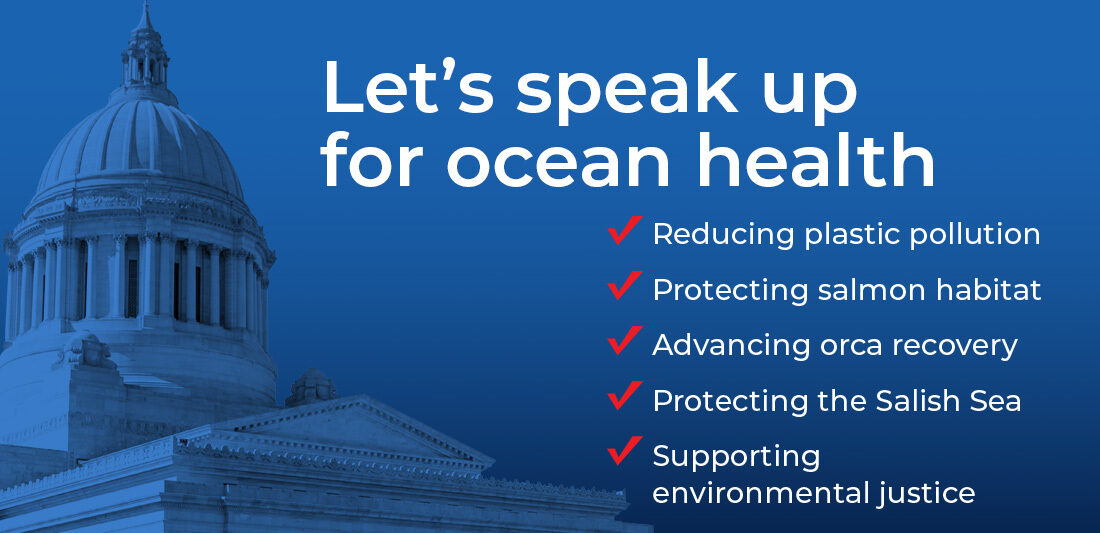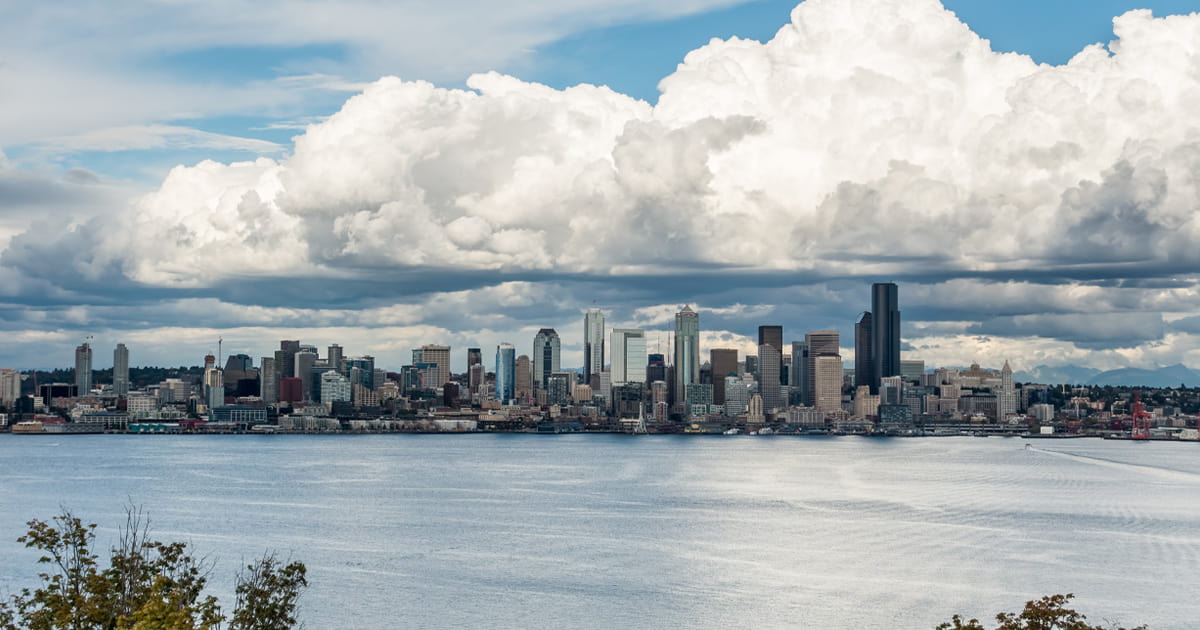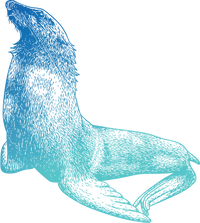Kelp, that’s all folks—the 2025 legislative session is over! Here’s our recap.
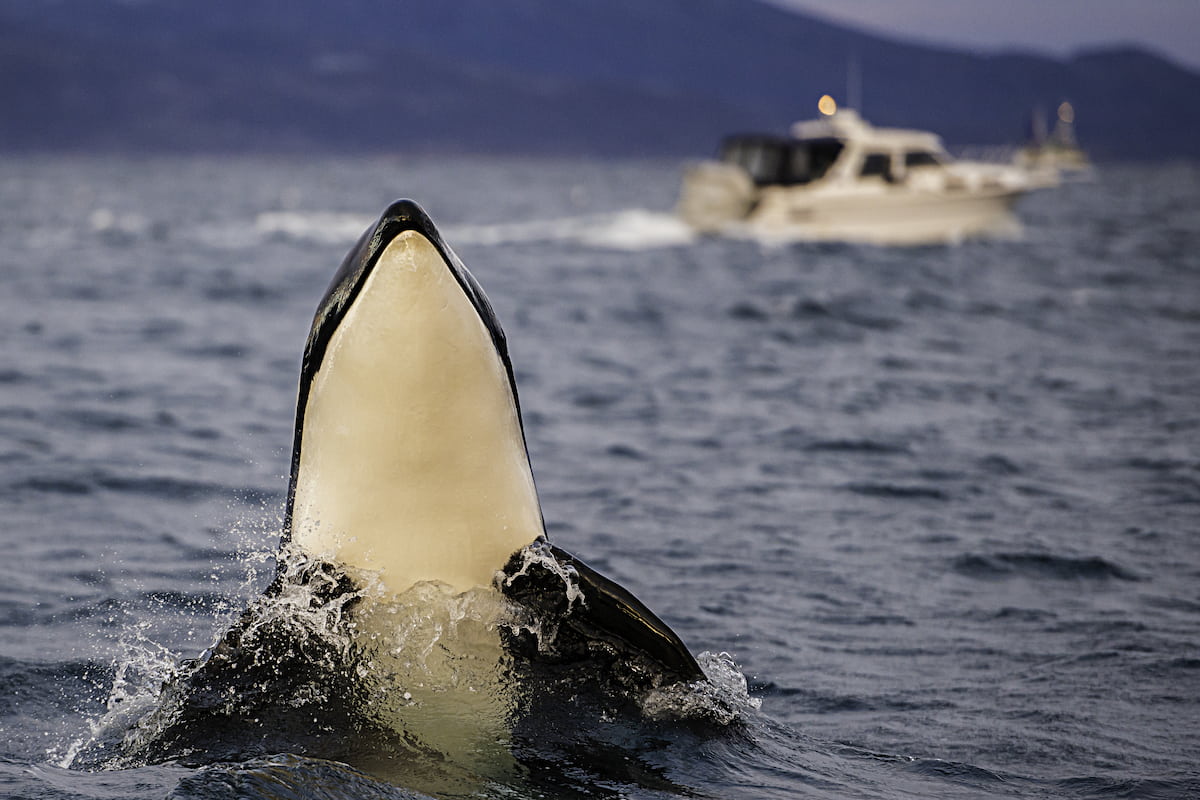
This session had a lot of long days, fast-moving advocacy efforts, and even some trips to Olympia. Check out what happened—in the imagined voices of some of our marine friends!
“I’m thrilled to announce that Washington has a new state symbol: me!”
“On April 16, Governor Ferguson signed HB 1631, officially designating bull kelp forests—aka me—as the marine forest of Washington. He also declared April 16, 2025, to be Bull Kelp Day and named one of the Aquarium’s Youth Ocean Advocates, who worked with Puget Sound Restoration Fund to come up with the idea for this bill, Washingtonian for a day!
Thanks to Representative Nance, who I’ve heard was a great ‘kelp’ and champion, this bill is a key step in acknowledging the importance of bull kelp forests and the critical role we play in the health of the Salish Sea.”
—Bull kelp forest
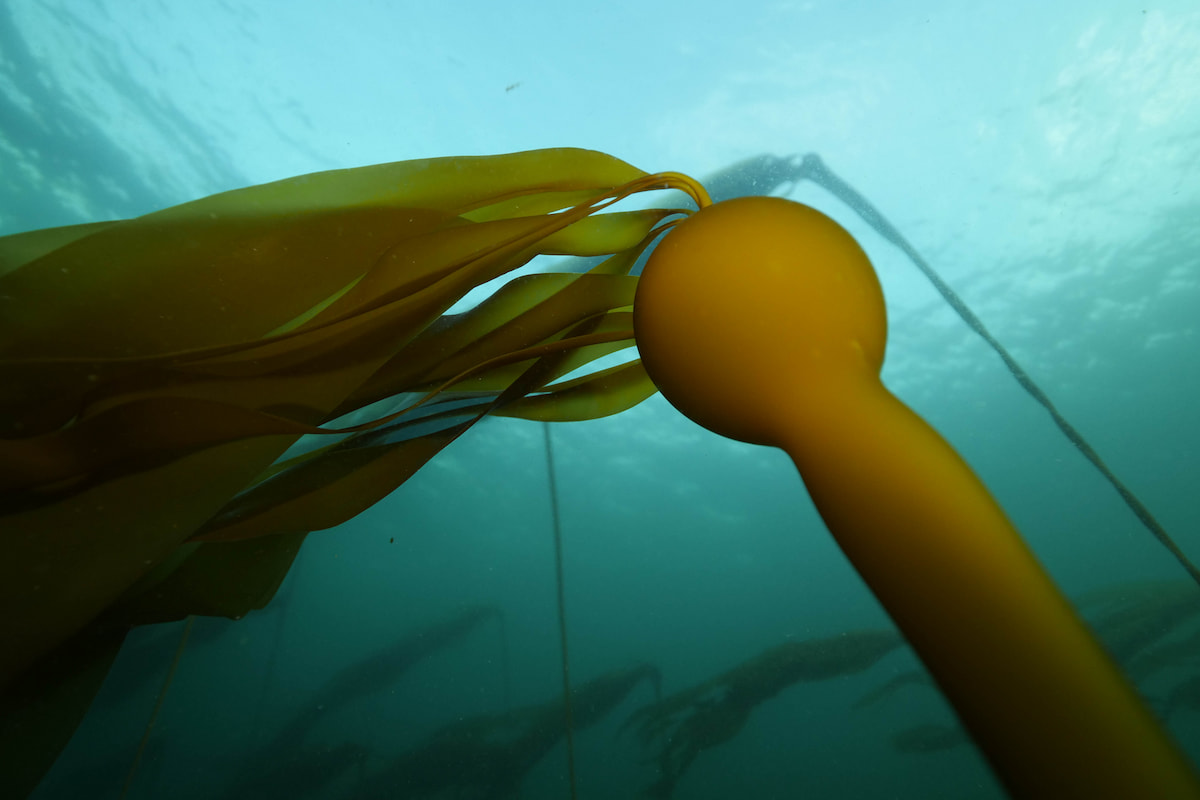
It’s critical to emphasize the importance of bull kelp right now because approximately 80% of bull kelp forests have disappeared, particularly in south and central Puget Sound. Check out our web story to learn more!
“That’s a ‘WRAP’ on plastic!”
“Jellyfish are some of my favorite snacks and let me tell you, if you think cold fries are a bummer, there’s nothing worse than chomping on a plastic bag. Or trying to lay my eggs in sand mixed with tiny pieces of plastic trash.
For the last five years, the ‘turtley’ awesome humans at the Seattle Aquarium have been working with rad environmental champions Representative Berry, Senator Lovelett and other partners to advocate for a bill that would help reduce plastic and other packaging materials. Previous versions of the bill, the WRAP Act and the ReWRAP Act, didn’t make it over the finish line—but the latest one, the Recycling Reform Act (SB 5284), finally passed the legislature!
This bill will ensure curbside recycling services for all Washingtonians—including the 11 jurisdictions currently without—and incentivize producers to use packaging that’s more recyclable, reusable or compostable. This is a big step in reducing plastic pollution so I, my friends and our families can swim, dive and snack safely. Truly time for a shell-ebration!”
—Sea turtle
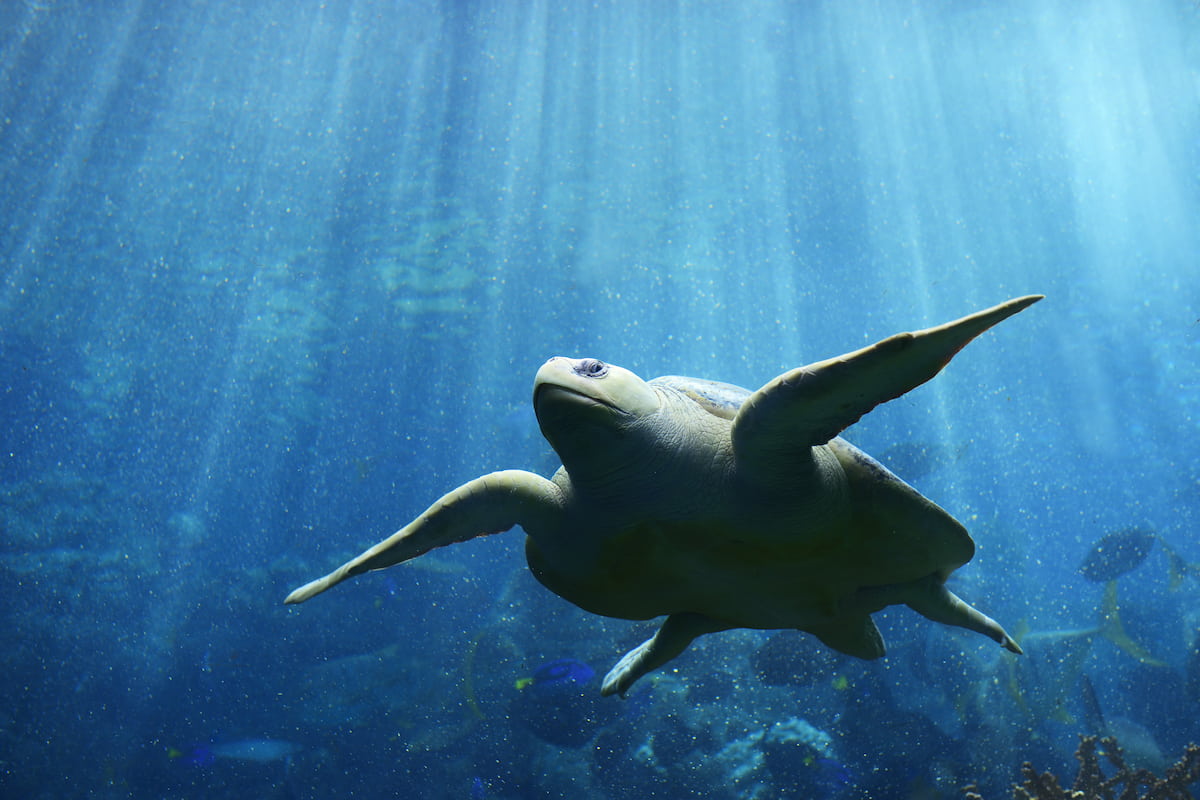
In addition to sea turtles, hundreds of marine species—including whales, salmon and seals—ingest plastic pellets or become entangled in plastic. The Recycling Reform Act is an important step in reducing the amount of plastic that ends up in the ocean.
“You might’ve heard the phrase, ‘just keep swimming,’ but do you ever think about what you’re swimming in?”
“I sure do. To keep myself and my fellow salmon healthy, it’s important that the waterways we’re swimming, eating and reproducing in are clean and free of pollutants and toxics. And I hate to talk dirty about Washington, but hundreds of sewage spills occur across the state every year. I couldn’t read a spill alert—but even you humans aren’t getting notified, since information isn’t typically available when a spill has occurred.
That’s why I’m sending my best fishes, er, wishes, to the Aquarium’s policy team for helping to pass HB 1670, championed by Rep. Hunt and Sen. Slatter. As a result, there will be a public-facing website so humans can look up information about sewage spills to help improve transparency around human and environmental health. Now can someone teach me how to read?”
—Salmon
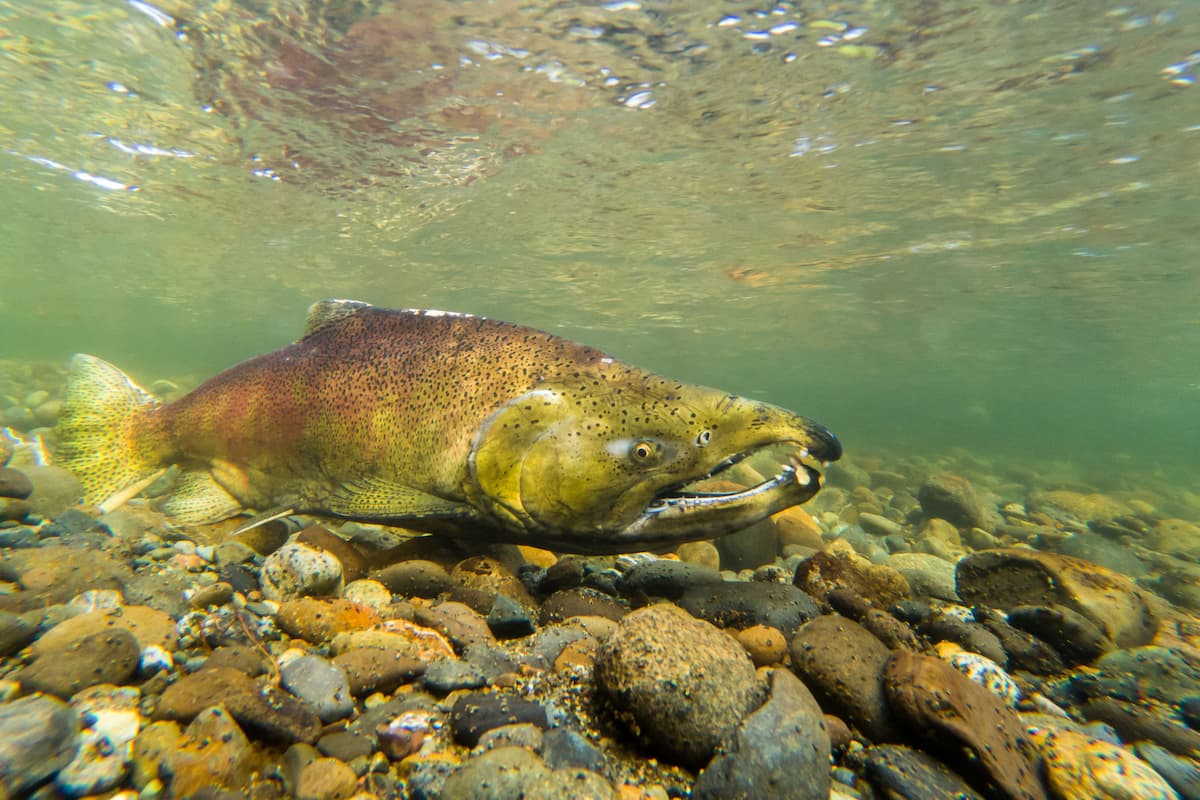
Salmon play a critical role in the health and functioning of their ecosystems. Even though their populations are relatively small, they impact the wellbeing of many other species and can serve as an indicator of the overall health of their habitats.
“You probably know that orcas like me breathe air, just like humans, but did you know that air pollution is bad for us, too?”
“And, while most things aren’t as black and white as I am, this issue is. Polluted air can lead to respiratory issues, which can lead to other health conditions. That’s why I’m so excited that the Aquarium has been supporting the CURB Act (HB 1303), which is led by Front & Centered and Rep. Mena. While it didn’t pass this session, we’re going to keep trying!
Unlike my tail, supporting this bill is no ‘fluke.’ This legislation would require environmental justice impact statements to evaluate environmental and public health risks as well as cumulative impacts on overburdened communities. People from such communities typically live about 2.5 years less than others. Some air pollutants are incredibly persistent and aren’t broken down easily, so they can accumulate and persist as they move through the food chain. Yep, you’re right; this is concerning for apex predators like me. That’s why this bill is important to the health of Puget Sound and everyone who depends on clean air—including marine mammals like yours truly!”
—Orca

Along with clean air and water, orcas need plenty of salmon to thrive. Learn more about the threats they face and how you can take action to make a difference on our Helping orcas webpage!
“Just like my sea turtle friends, sometimes I mistake human-made materials for food or natural materials.”
“I’m thrifty and I always have been. Finding different materials to help build my nest is a great way to create a cozy, safe home for my babies. I’m also thrifty when it comes to finding food, often looking for it on the beach as well as in the water. But it can be hard to tell what’s natural and what isn’t.
My feathers are all I need to look and feel good, so I can’t relate to the human need to buy so many clothes. But I do know that fashion waste, particularly fast fashion waste, is a big problem. It’s estimated that 100 billion pieces of clothing are manufactured each year and 35% of the materials in the fashion industry supply chain end up as waste¹, often in oceans and washed up on beaches.
HB 1107, championed by Rep. Mena, didn’t pass but will hopefully be reintroduced next session. It would require manufacturers to be more transparent about the impacts of their clothing—from chemicals in the materials to how unwanted and excess waste is managed.”
—Seabird
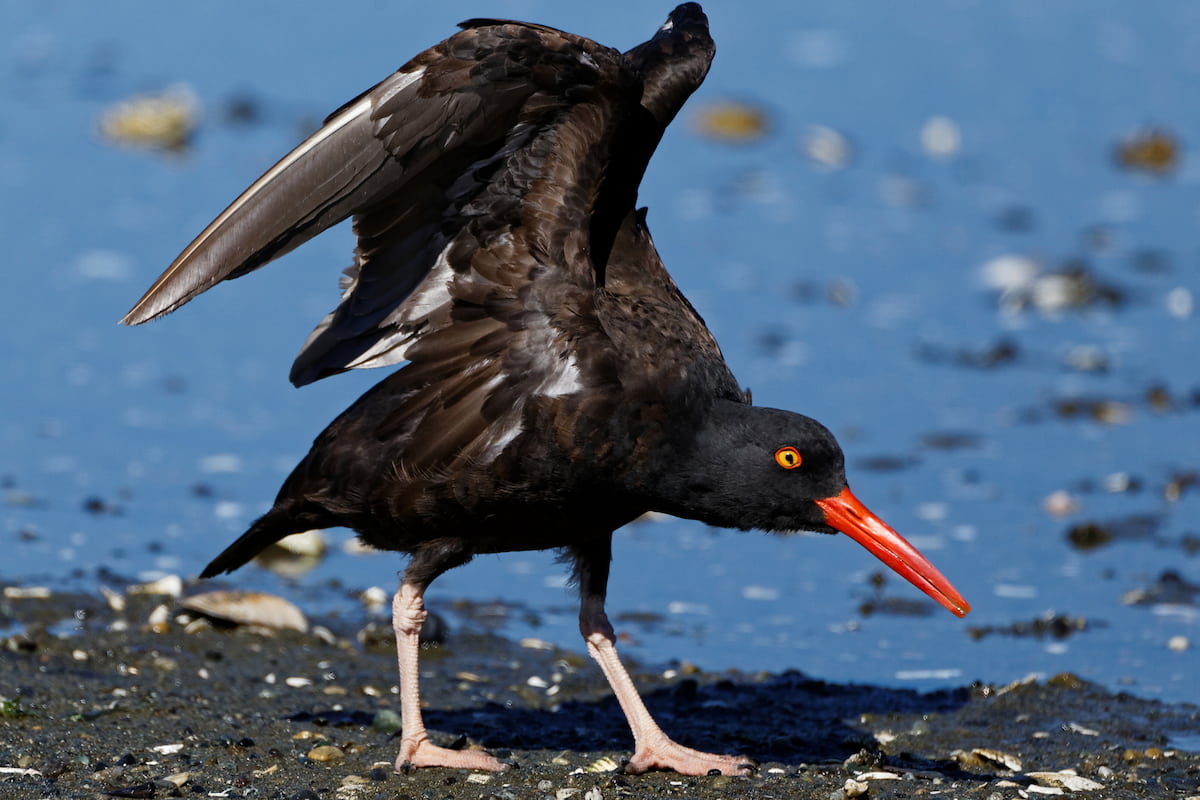
Despite their name, oysters aren’t the favorite food of black oystercatchers. They’re more often found eating mussels, chitons and limpets. Learn more on our webpage—then come see this beautiful species in person at the Aquarium!
Thanks to our imaginary marine pals for sharing their thoughts about the 2025 state legislative session. Interested in learning more about the Aquarium’s policy work—and opportunities to raise your voice in support of the marine environment? Visit our Influencing policy webpage.
